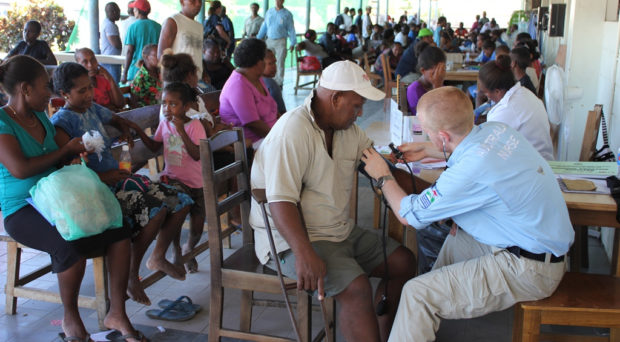
Dr. Adhikari specializes in tropical and public health, with a focus on clinical management of tropical diseases and research in preventative measures.
Dengue is among the most widespread of mosquito-borne tropical diseases and one of the leading causes of serious illness and death among children in many Asian and Latin American countries.
How did you get started as a clinician in the field of tropical diseases?
During the years of my clinical practice in Nepal from 2007 to 2011, I saw the high burden of tropical diseases and the apparent feasibility of preventing them. In following years, I went to pursue tropical medicine training in Mahidol University. Soon after completion, I began my clinical practice in Nepal and in South Sudan with Medecins Sans Frontiers.
From your perspective as a clinician, how has the treatment of dengue changed over the course of your career thus far?
Judicious and timely fluid management has remained central in the treatment of Dengue throughout my career.
Judicious and timely fluid management has remained central in the treatment of Dengue throughout my career. However, the new dengue severity criteria (2009) proposed by WHO in contrast to 1997 and further expansion of treatment guidelines (2012) have been the most notable changes.
What are the challenges of treating patients with dengue?
The challenges in treating patients with dengue are the need of monitoring and adjustment of the treatment according to the host’s age, underlying diseases, severity (dengue fever, dengue hemorrhagic fever and dengue shock syndrome), disease stage (febrile, critical and recovery phase). Delayed treatment increases morbidity and mortality.
What do you consider to be the most important advances in the treatment and prevention of dengue?
I think ongoing research and development of a dengue vaccine are the most important advances in dengue treatment and prevention.
I think ongoing research and development of a dengue vaccine are the most important advances in dengue treatment and prevention. The collection of water in the vessels for everyday use, open water tanks attached to bathroom, and water collection near homes and gardens are some of the common breeding habitats for the vector, especially in the countryside.
Health education on the removal of these breeding habitats has been underway. Similarly, health education on using bed nets and insecticide use needs to be further strengthened.
Could you explain some of the new developments in the treatment and prevention of dengue?
Various types of vaccines—including live chimeric virus vaccines, live attenuated vaccines, inactivated virus vaccines, live recombinant both DNA and subunit vaccines—are currently in development. Similarly, current findings on the use of recombinant antibodies as therapeutics could be promising for future.
Comments